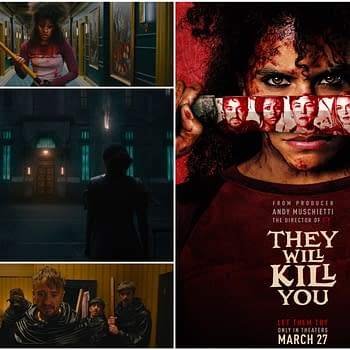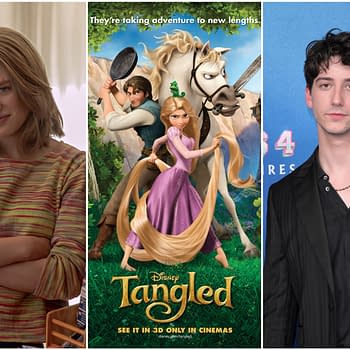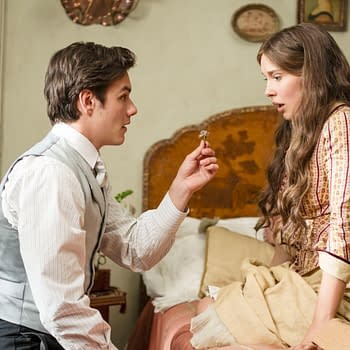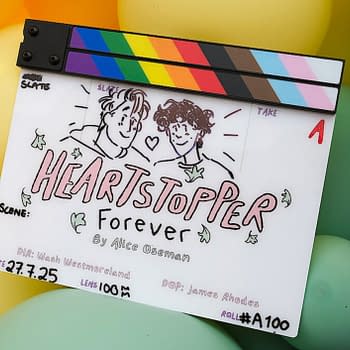Posted in: Interview, Movies | Tagged: relativity media, The Man In The White Van
The Man in the White Van DP on Indie Advantages, Mainstream & Future
The Man in the White Van cinematographer Gareth Paul Cox spoke to Bleeding Cool about indie vs mainstream & future behind the camera.
Article Summary
- Explore the challenges of filming The Man in the White Van with a dynamic cast across different age groups.
- Discover Gareth Paul Cox's insights on indie vs. mainstream film projects and their unique dynamics.
- Gareth Paul Cox shares his passion for cinematography and the excitement of crafting visual storytelling.
- Cox discusses his future, balancing cinematography and the possibility of further directing ventures.
Gareth Paul Cox is always looking for a new challenge behind the camera, whether as a cinematographer, crew, or directing. Working on a variety of projects from documentaries, films, and TV covering a variety of subjects from football, reality TV, and dramas, Cox's latest project is Relativity Media's The Man in the White Van, which is based on true events in 1975 Florida where a series of violent disappearances go unnoticed, and young Annie (Madison Wolfe) is targeted by an ominous white van that stalks her every move. As the menace escalates, her parents dismiss her fears, and Annie is soon plunged into a terrifying nightmare that shatters her world. Cox spoke to Bleeding Cool, coordinating filming between the cast's younger and older cast, how he compares his indie versus his more mainstream work and his future.
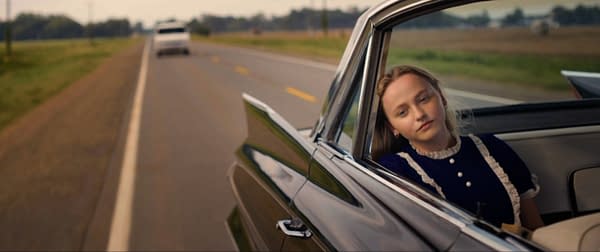
The Man in the White Van: Cinematographer Gareth Paul Cox on Skeels, Capturing 1975 Florida, and More
Bleeding Cool: Did the cast availability curve affect you guys creatively as to what you could film with younger actors compared to their adult peers?
Yeah, for the most part, everything was executed as planned. We had a day to a day and a half of weather-related issues: heavy rains. Seasonally, that's normal. We were there closer to the end of the year when we were shooting, which led to having to shift our schedule around, which obviously impacted actor availability and things like that. The amount of time we had our principal cast because in filmmaking, a lot of times you only have specific people for a short amount of time, and they're all worked into a schedule. Once that schedule started rearranging, we had to adapt and shoot quickly on some scenes. Ultimately, I don't think any of that impacted the storytelling. We ran into more logistical issues there.
What is the biggest difference for you working on indie projects compared to something more mainstream on film or TV?
Independent film is an interesting place to work, and I'm doing a lot of independent films right now. The last two movies I did this past summer were both smaller indie films, and the one I'm currently on is also a smaller indie film. In some ways, I like them a lot because they lead you to get smaller crew sizes and smaller production companies involved, and you tend to be able to pivot when up against adversity or any story elements. You can usually change and adapt quickly because it doesn't have to go through a process of getting approvals and things like that on the same level you would on a bigger show or similar project.
That allows us to move in an interesting way as a unit, and the collaboration as a result is quick but also fulfilling and rewarding. That's not to say that you can't get that on bigger productions. At times, it's exciting, and you can get into a situation where you're adapting, flowing, and creatively bringing the story to life, maybe in a way that a bigger production might be a little bit trickier in real-time.
Do you see yourself leaning more towards directing? You've already done a few projects, or are you planning to stick more to cinematography?
I like directing commercials and smaller projects. I won't say I'm not directing in the future, especially not in the narrative world. For now, the place I like is being a cinematographer, serving a director's vision, collaborating with them on that level, and helping to tell that story. I balance a technical job with a creative vision and a creative side of that technical job. That's what's intriguing to me is putting all those pieces together. It's like a puzzle; I must figure out how to tell that story visually and how that story visually impacts the audience. What do you feel when you see this imagery? That's exciting to me as a director, as well as the stuff I've directed in the past. I've leaned in heavily into visual elements, and if I were to direct and go down that path, a lot of mine would be very visual, heavy, and maybe more abstract in in narrative. Again, not to say I won't go that route, but for now, what I like doing is the cinematography of motion pictures.
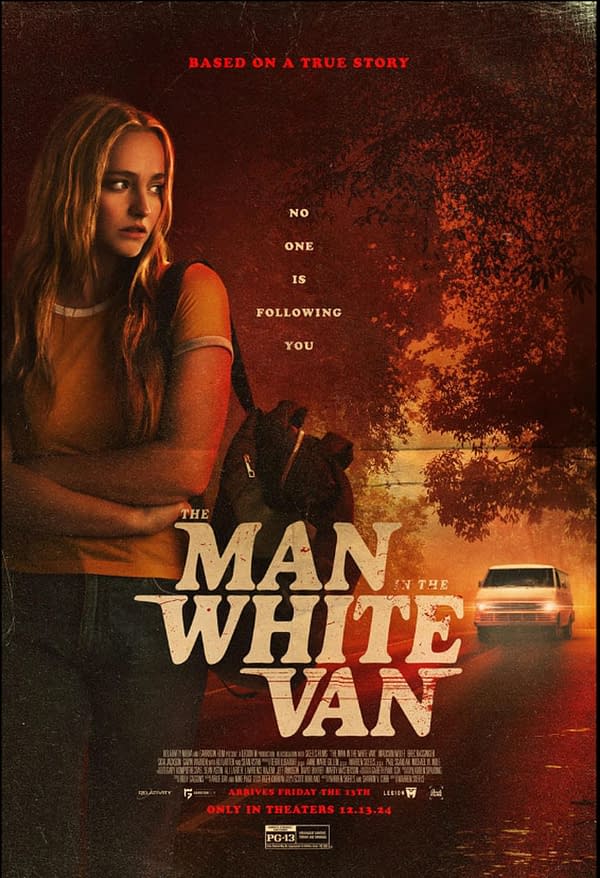
The Man in the White Van, which also stars Brec Bassinger, Skai Jackson, Ali Larter, and Sean Astin, is in theaters.







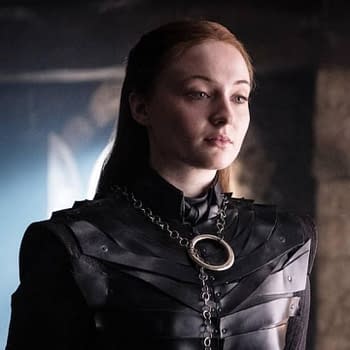



![Stranger Things: Lingering Questions Following the Finale [SPOILERS]](https://mlpnk72yciwc.i.optimole.com/cqhiHLc.IIZS~2ef73/w:350/h:350/q:75/rt:fill/g:ce/https://bleedingcool.com/wp-content/uploads/2026/01/StrangerThings_S5_0728_R.jpg)
